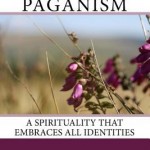Pagans don’t have a holy book with commandments from a deity. We tend to derive our ethics from reasoning about the world around us. We cultivate virtues rather than following commandments.
But we also have a specifically and recognisably Pagan response to the world.
Teo Bishop writes, “I have always believed that the stories you tell about the gods you worship need to be relevant in the world you live in. They must be more than just stories. They must have application.” He goes on to say that “the intersection of the myth and the meaning is where morality is born”.
My comment on this was,
I think the foundation of Pagan ethics is the idea that everything is sacred, because the Divine is / deities are immanent in everything.
The stories and mythologies that we share illustrate the idea of deities and spirits being involved in the world, and of people taking care of each other and of animals and plants. These are the illustrations of that basic insight.
If you believe that the physical universe is an embodiment of the Divine, and life is something to be celebrated, then your mythology, and your ethics, will flow from that.
Each Pagan story, myth, and legend will reinforce the view that everything is sacred, but the stories are not necessarily the source of that insight. Rather the insight rests in our emotional response to the world around us, a sense of being in right relationship with it when we treat it as a Thou and not an It.
Ethics versus morality
I have always felt that ethics are a bottom-up approach to behaviour, where your ethical choices spring from your ethos, whereas morality was a top-down approach, where morals were arbitrarily imposed from above by a deity. (The dictionary definition of morals and ethics does not bear out this distinction, but I still find it useful.)
Some traditions may derive their ethics from the traditional body of lore of a particular culture. This wisdom from the past, embedded as it was in experience and an ethic of responsibility towards other beings, is an excellent source of ethical guidance. Have a look at these Irish triads and Scottish proverbs, which are full of wisdom.
My criterion for deciding whether anything is right or not is, “does it harm anyone?” Of course it is impossible to completely avoid harm, but we can and should reduce the harm caused by our actions. I also draw on the Eight Wiccan Virtues as a guide to how to act.
















